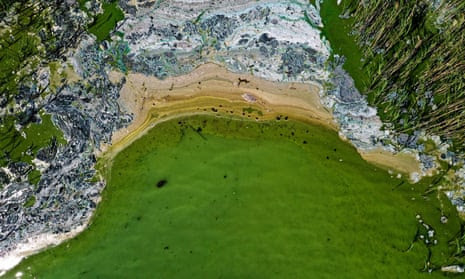
Scientists seeking to explain the mystery of life on Earth have been working on various scenarios for decades, and now chemists at Purdue University in Indiana, USA, believe they have found the answer to the question of how primordial molecules could spontaneously form the building blocks of life.
Scientists have long been able to demonstrate that life originated in the oceans, but have been unable to explain the chemical mechanisms that led to the transformation of primordial molecules. These molecules, the crude amino acids, were probably first brought to Earth regularly by meteorites and were able to react to form peptides, the building blocks of proteins and life.

However, this process requires the loss of a water molecule, which is difficult to imagine in a humid environment like the oceans where life is supposed to have emerged. The emergence of life would therefore require both a wet and a dry environment.
The solution lies in the notion that water is not wetted in the same way everywhere, particularly when a drop of water encounters the atmosphere. During such contact, reactions can occur extremely rapidly, such as the transformation of amino acids into peptides.
This discovery is the fruit of decades of mass spectrometer studies of chemical reactions in water droplets. Graham Cooks, Professor of Chemistry at Purdue University, explains that reaction rates in water droplets are a hundred to a million times faster than those observed in a bulk solution.
He explains that this is the first demonstration that primordial molecules, amino acids, can spontaneously form peptides, the building blocks of life, in pure water droplets, without the need for a catalyst. The beginnings of life on Earth are thus to be found in the spray that flies through the air, in the waves that wash ashore or in the fresh water that runs down the slopes.
This work, which may help us to understand the creation of life elsewhere in the universe, is also revolutionizing our understanding of chemical synthesis, a knowledge that is indispensable in the development of new treatments for diseases. Graham Cooks believes that droplet chemistry is a game-changer for synthetic chemists’ experiments, which are usually very slow. It is possible to imagine a major acceleration in the synthesis of new chemicals, in particular new drugs, and perhaps a Nobel Prize in chemistry for these discoverers.





